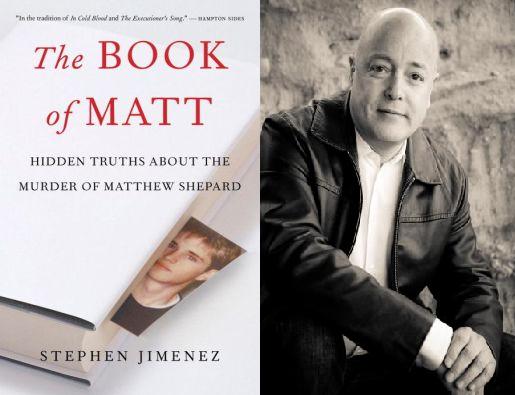We thought we knew this tragic story.
Videos By Rare
It was late and Matthew Shepard, a young gay college student in Wyoming, needed a ride home. He left the Fireside Lounge with two strangers who offered a lift. Aaron McKinney and Russell Henderson were not Good Samaritans, however. They took Shepard to a remote outskirt of Laramie, tied him to a fence post and pistol-whipped him so many times that the cyclist who found him the next day mistook him for a scarecrow.
The media told Shepard’s story repeatedly, explaining the two murderers had gone into a homophobia-induced rage when Shepard came onto them. JoAnn Wypijewski described the immediate aftermath of the murder in Harper’s Magazine, “Press crews who had never before and have not since lingered over gruesome murders of homosexuals came out in force, reporting their brush with a bigotry so poisonous it could scarcely be imagined.”
Groups like GLAAD moved in and defined the narrative: This is what happens when homosexuality isn’t fully embraced as part of mainstream society. In fact, as Breitbart’s Austin Ruse writes, this attack had enormous cultural consequences:
Almost immediately Shepard became a secular saint, and his killing became a kind of gay Passion Play where he suffered and died for the cause of homosexuality against the growing homophobia and hatred of gay America.
Indeed, a Mathew Shepard industry grew rapidly, with plays and foundations along with state and even national hate-crimes legislation named for him. Rock stars wrote songs about him, including Elton John and Melissa Etheridge. Lady Gaga performed John Lennon’s “Imagine” and changed the lyrics to include Shepard.
Even before Shepard died, two of his friends were peddling the narrative that he died at the hands of vicious homophobes. Within days, the gay establishment latched onto what would drive the hate-crimes story for years to come; even now, the Laramie Project, a stage play about the killing, is performed all over the country. Indeed, it will be performed next week at Ford’s Theater in Washington, D.C.
But what if everything we knew about the Matthew Shepard story was a lie?
In 2000, Stephen Jimenez — an award-winning gay journalist — went to Laramie to research a screenplay he wanted to write about this incident. But when he got there, he realized the Shepard story was not a clear-cut case of violent bigotry. After interviewing more than 100 sources over the course of thirteen years, he realized a very different truth: Shepard’s murders weren’t strangers who killed him because of homophobic panic. In fact, they were his gay lovers.
Jimenez’s new book, “The Book of Matt,” posits the true circumstances of Shepard’s brutal murder involved drugs and sex — not rampant homophobia.
And so, here we are.
For years, people with moral, religious, or political opposition to gay marriage have been accused of creating hostile, dangerous environments for gays. I personally have had many discussions with people about my religious beliefs, in which I’ve been accused of hostility.
“There aren’t roving bands of Christian youths getting out of Sunday School and looking for a homosexual to beat up,” I’d say.
“What about Matthew Shepard?” was the invariable response. “Your stubborn refusal to accept homosexual behavior has created the hostile environment toward people like him.”
Invoking Shepard’s name was a conversation-ender. No one wanted something as horrible as that to happen again. I certainly didn’t want to be even partially responsible for violence against gays.
So, what happens now that we know the most famous “hate crime” was actually perpetrated by Shepard’s gay lovers? Will people apologize, lament the error, repent of all the hyperbolic accusations against people who have principled disagreements with homosexuality?
If the coverage of this story in The Advocate, one of the nation’s most influential publications, is any indication, it’s doubtful. Aaron Hicklin writes, “There are valuable reasons for telling certain stories in a certain way at pivotal times, but that doesn’t mean we have to hold on to them once they’ve outlived their usefulness.”
In other words, the left doesn’t mind deception, if the deception exists for “valuable reasons.”
The Matthew Shepard story may now end up as one of a long line of leftist fabrications — fabrications that existed for the sake of an allegedly higher cause. Austin Ruse notes that Roe v. Wade rested on lies. For that matter, so did Lawrence v. Texas, the case that established a constitutional right to sodomy.
It is telling that many of the left’s greatest cultural accomplishments are built on hoaxes. The oppressive America they claim exists simply had to be made up. The reality was far too benign to fit the “No justice! No peace!” paradigm that motivates the leftist masses and their willing allies in the media.
In the cases of Roe, and Lawrence and Matthew Shepard, the cultural damage has already been done. But now citizens are on notice.
Beware when the left tells stories that seem too bad to be true.

